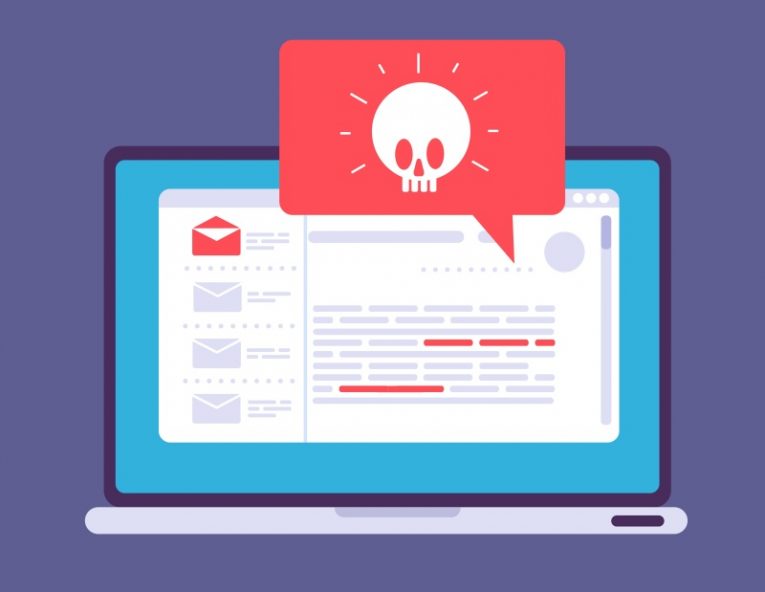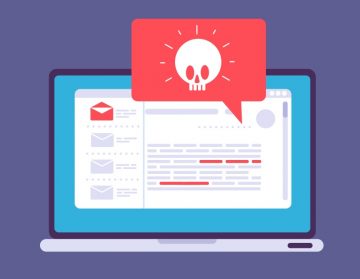The Truth Behind The We Hacked Your System Email Scam

Table of Contents
A Common Email with an Empty Threat
The "We Hacked Your System" email scam is a widespread spam campaign designed to scare recipients into paying money. These messages typically claim that the sender has full access to the victim's computer, including compromising videos or personal files, and threatens to expose this information unless a ransom is paid. However, none of these claims are true. These emails are crafted purely to exploit fear, not based on any actual security breach.
How the Scam Message Is Structured
This scam email generally asserts that the sender installed a trojan on the user's device after they allegedly visited a compromised adult website. The message goes on to describe fabricated activities, such as recording the victim through their webcam and stealing sensitive data. To pressure the recipient, the scammer includes a deadline—often around 48 to 72 hours—to make a Bitcoin payment, or else the alleged content will be shared with friends, colleagues, and family.
Here's what the fraudulent message says:
Consider this message as your last warning.
We hacked your system!
We have copied all the data from your device to our own servers.
Curious videos were recorded from your camera and your actions while watching porn.
Your device was infected with our virus when you visited the porn site.
The Trojan virus gives us full access, allows us to control your device.The virus allows not only to see your screen, but also to turn on your camera, microphone, without your knowledge.
We took over the video from your screen and camera, then we mounted a video in which you can see you watching porn in one part of the screen and masturbating in the other.But that's not all! We have access to all the contacts in your phone book and social networks.
It won't take us long to send this video to your friends, family and friends on social networks, messengers and email in minutes.
We have a lot of audio recordings of your personal conversations, where a lot of "interesting" things are revealed!
This information can destroy your reputation once and for all in a matter of minutes.
You have an opportunity to prevent irreversible consequences.To do this:
Transfer 1300 $ USD (US dollars) to our bitcoin wallet.
Don't know how to make a transfer? Enter the query "Buy bitcoins" into the search field.Our bitcoin wallet bc1qj2aesryeq0yhg6ntk4s8n2sssgtpde4a2jt5eq
After making the payment, your video and audio recordings will be completely destroyed and you can be 100% sure that we won't bother you again.You have time to think about it and make the transfer - 50 hours!
After you read this letter, we will get an automatic notification. From that moment on, the timer will start.It is useless to complain, because bitcoin-wallets cannot be tracked, as well as the mail from which the letter arrived to you.
We also do not advise you to send this letter to anybody.
In this case the system will automatically send a request to the server, and all data will be published in social networks and messengers.You will not be able to solve the problem by changing passwords in social networks, as all the information is already downloaded to the cluster of our servers.
Think about what your reputation means to you and how much the consequences will be.
You have 50 hours.
No Hacking Has Actually Occurred
Despite how convincing or alarming the email may appear, it's important to understand that these claims are entirely fabricated. No trojan was installed, no files were copied, and no webcam recordings were made. This is a textbook example of a sextortion scam—one that relies solely on psychological manipulation rather than technical capability.
Why Victims Are Asked to Pay in Bitcoin
The scammer typically demands payment in Bitcoin. This cryptocurrency is preferred because it is largely anonymous and difficult to trace. Once the payment is sent, there is virtually no way to recover the funds. Unfortunately, even if a recipient pays the ransom, the scammer will likely disappear without fulfilling their empty promises to "delete" the supposed data.
These Scams Often Recycle the Same Tricks
The "We Hacked Your System" message is one of many scams that follow a similar formula. Other known examples include emails titled "Your System Was Breached," "I've Got Access To Your Smartphone," and "Time Is Slipping Away." While the names change, the threats and demands remain consistent. These are not the work of sophisticated hackers but opportunists exploiting panic and embarrassment.
Not All Scam Emails Look Obvious
A common misconception is that scam emails are always full of spelling mistakes and strange grammar. While some do contain noticeable errors, many are surprisingly well-written. In some cases, scammers imitate legitimate businesses or platforms, adding another layer of deception to their messages. This makes it even more important to verify the legitimacy of emails before taking action.
The Broader Role of Spam Emails
Aside from extortion schemes, spam emails are often used to spread various threats. These may include phishing attempts (to steal login credentials), fake technical support offers, or bogus refund scams. In other instances, they distribute dangerous files through attachments or links. These files might include executable programs, PDF documents, or Microsoft Office files embedded with harmful code.
How These Threats Reach Your Inbox
Scammers typically use large-scale campaigns to reach as many users as possible. They often rely on data breaches, email leaks, or random generation techniques to build their mailing lists. Once a target receives the message, simply clicking on a link or downloading an attachment could activate the next stage of their scheme. Some files require users to enable macros or interact with embedded elements—seemingly harmless actions that can have real consequences.
Protecting Yourself from These Scams
The best defense against scams like "We Hacked Your System" is awareness. If you receive such an email, do not panic, and most importantly, do not reply or make a payment. Instead, delete the message and report it to your email provider as spam or phishing. If you're concerned about your device security, run a reputable security scan for peace of mind.
Optimal Practices for Online Safety
To reduce the risk of exposure to future threats, always be cautious with unknown emails—especially those that come with attachments or links. Download software only from official websites, and never trust pirated programs or third-party updates. It's also wise to keep your systems and applications updated through genuine methods.
Key Takes
The "We Hacked Your System" scam is part of a broader effort to manipulate users through fear. Although the emails may sound threatening, they are completely baseless and rely on the assumption that recipients won't question them. By understanding how these scams work and staying vigilant, users can protect both their peace of mind and their digital environments.








